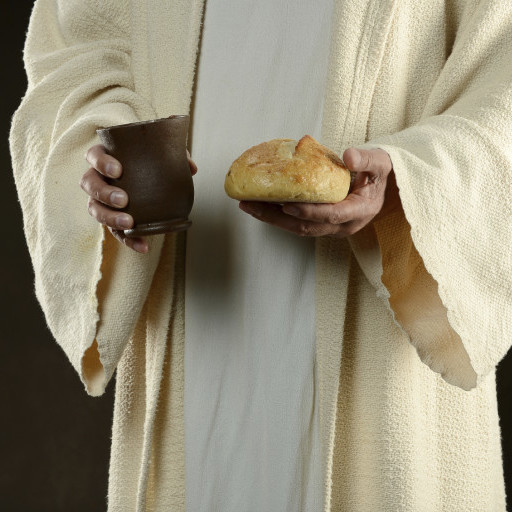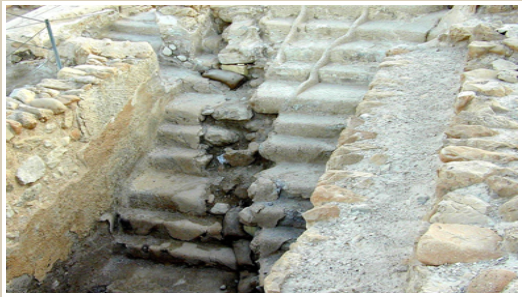“And go ye out from among the wicked. Save yourselves. Be ye clean that bear the vessels of the Lord.”[i] So has the Lord God commanded priesthood holders to always be clean as in ancient Jewish times. In ancient Israel the High Priests were baptized prior to entering the Holy of Holies. Just like no unclean thing can enter the kingdom of Heaven, so no unclean thing could enter the Holy of Holies which represents the throne of the kingdom of Heaven for God himself. This ritual cleansing was done by the High Priests even in Christ’s time. Several in house baptismal fonts were found in Jerusalem excavations. One would go down one side of the stone steps into the water and immerse oneself and come up on the clean side to put on the priesthood robes.[ii] Common people could ritually wash themselves after becoming unclean through touching a corpse, childbirth, skin disease or after getting animal blood on oneself from an animal sacrifice.[iii] So when John the Baptist and Jesus and his apostles came baptizing, they were adapting an ancient ritual for a covenant of entering the kingdom of God on earth.
However, contrary to the Jewish need for constant cleansing through baptism, the early Christians only baptized once. Just like the Jews needed frequent sacrifices of animals to be forgiven of sins, so did they need frequent baptisms. All this was done away with the ultimate sacrifice of the Son of God. The apostle Paul said:
“But Christ being come an high priest of good things to come, by a greater and more perfect tabernacle, not made with hands, that is to say, not of this building; Neither by the blood of goats and calves, but by his own blood he entered in once into the holy place, having obtained eternal redemption for us.”[iv]
But what if we in our frailty as humans sin again after being cleansed by baptism? What do we do then? The way of the Jews makes sense because of the frequent need of cleansing following repentance. However, Jesus Christ provided a more powerful way of being cleansed. His body and blood represented by the bread and wine (some churches use water here) of the Lord’s Supper provides this renewed weekly cleansing. It is a weekly opportunity to remember His ultimate sacrifice “once offered to bear the sins of many”.[v] As said in the words of the first Lord’s Supper:
“Jesus took bread, and blessed it, and brake it, and gave it to the disciples, and said, Take, eat; this is my body. And he took the cup, and gave thanks, and gave it to them, saying, Drink ye all of it; For this is my blood of the new testament, which is shed for many for the remission of sins.”[vi]
[i] D&C38:42
[ii] https://www.bibleodyssey.org/en/tools/image-gallery/q/qumran-mikveh-stairs
[iii] ibid
[iv] Hebrews 9:11-12,23-28 KJV
[v] Hebrews 9:28
[vi] Matthew 26:26-29

